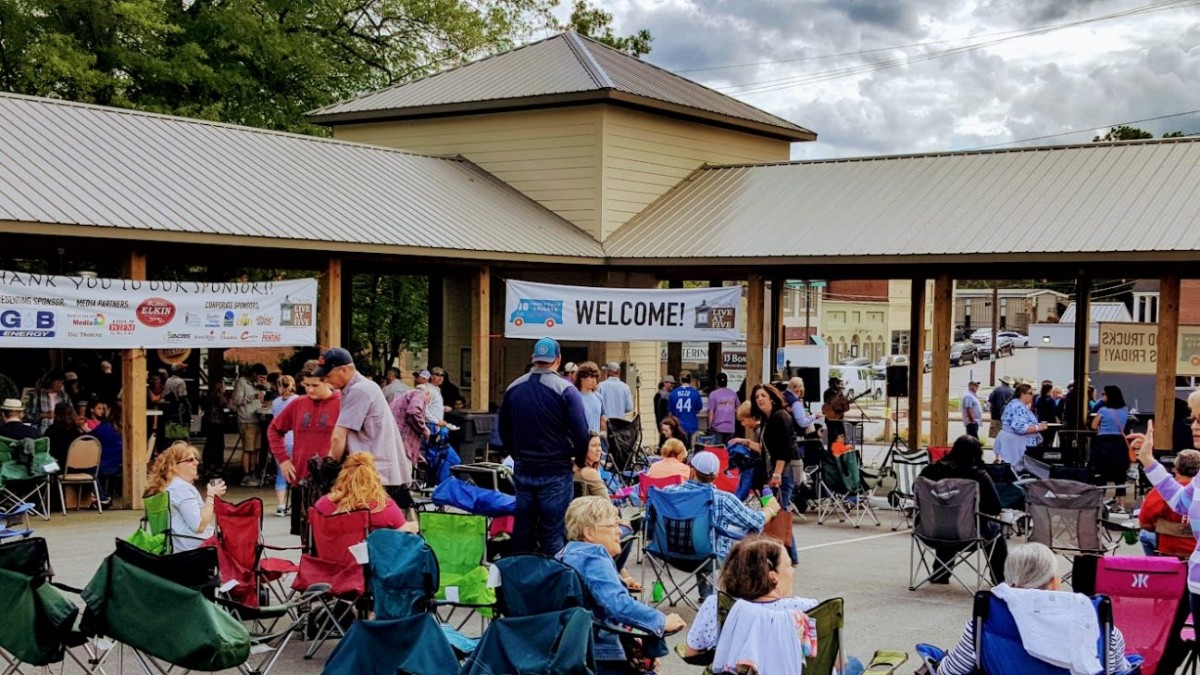When West Virginia House of Delegates member Eric Porterfield, R-Mercer, called the LGBT community “the modern-day version of the Ku Klux Klan” in an interview with a Charleston Gazette-Mail reporter last week, it drew condemnation not just in the state, but nationwide. But Porterfield, in fact, joined a long legacy of right-wing evangelicals who have conflated legal protections for lesbians, gay men, bisexuals and transgender people with white supremacy and domestic terrorism.
The Southern Baptist Convention in 2012 resolved that “homosexual rights activists” had “misappropriated the rhetoric of the Civil Rights Movement” in advocating for marriage equality and other legal protections.
Bryan Fischer, former director of issues analysis for the American Family Association, has compared LGBT people to Nazis numerous times, arguing in a 2010 column that “homosexuality gave us Adolph [sic] Hitler.”
And Tony Perkins, president of the Christian conservative lobbying group the Family Research Council, argued in a 2018 column on the organization’s website that marriage equality was really “about obliterating every moral and cultural boundary humans have ever known.”
“The LGBTQ is suppressing the freedom of people that disagree with them and forcing their ideology,” Porterfield told Rachel Anderson, a reporter and weekend anchor with the Bluefield, West Virginia, TV station WVVA, in a separate interview.
“If they do not get their way, they cause chaos, apply pressure, intimidate, internet stalk,” he added. “They’re the most evil-spreading and hate-filled group in this country.”
Porterfield’s comments came after a controversial rant in a legislative committee meeting, during which lawmakers were debating a bill to add protections to the state’s housing and employment nondiscrimination law for sexual orientation and gender identity.
His broader claim that “the LGBTQ” are harming America by lobbying for equal protections under the law is not new either. It’s right out of the right-wing evangelical playbook, according to Randall Balmer, an Episcopal priest and historian whose work studying the religious right has been recognized with numerous accolades, including an Emmy nomination for script-writing and hosting the PBS documentary based on his book, “Mine Eyes Have Seen the Glory.”
Balmer said that right-wing evangelical leaders often rely on a “rhetoric of victimization” to make themselves seem persecuted in the face of changing social norms.
“That, by the way, is one of the reasons that they embrace Trump…he’s very good at this rhetoric of victimization,” Balmer said. “What this guy in West Virginia is saying is just a variant on this. ‘We’re the ones who are under siege, we’re the ones who have some sort of grievance that needs to be redressed.’”
But even given this context, Porterfield’s comparison of LGBT people with the KKK is a strange one, given the religious right’s origins. Although many believe abortion had a central role in pushing evangelical leaders toward politics, pro-life rhetoric did not become important in those circles until well past the 1970s.
In a Politico Magazine piece, Balmer traces the beginnings of the evangelical right’s political efforts to a court case in the late 1960s, when a group of Black parents in Holmes, Mississippi, filed a lawsuit against the U.S. Treasury Department in hopes of preventing segregated private K-12 schools from receiving full tax-exempt status. As the Internal Revenue Status targeted the tax exempt status of private, segregated primary and secondary schools, leaders like the late Jerry Falwell became involved in the fight. “In some states it’s easier to open a massage parlor than to open a Christian school,” Falwell is quoted as saying at the time in an article in The Nation exploring the preacher’s racist roots.
The racism exhibited by leaders of the evangelical right at the time was not limited to their efforts to preserve whites-only Christian academies. Tony Perkins, the aforementioned president of the Family Research Council, had no problem associating with the KKK when he served in Louisiana’s House of Representatives. He even spent time with David Duke, a former grand wizard for the white supremacist hate group.
“The religious right has its roots in racism, I’m sorry to say,” Balmer said. “So for this guy to kind of call on that trope is both ironic, but also fully compatible with the history of this movement.”
Heather Warren, a University of Virginia religion professor who studies American religious history, agreed with Balmer, adding that racism and Christianity were intertwined not just in evangelical movements, but in “hardcore KKK ideology.” Warren, who is also an Episcopal priest, said that in the 1950s and ‘60s, leaders in the religious right were fighting not to make America great again, but “to keep America Christian.”
“And Christian and white and democracy all went together,” she said. “They were all interchangeable. There was this way that it all added up to a white supremacy.”
So laws and ordinances banning discrimination based on sexual orientation and gender identity are a direct affront to democracy, Warren said, and an attack on democracy is synonymous with an attack on white Christianity and America, under this belief system.
“When Falwell was alive and writing, usually in his catalogue of phenomena and types of people who were eroding America and eroding American democracy, he’d often start off with homosexuals at the top of his list,” Warren said. “Feminists were close behind.”
It’s a convenient leap to make if you want to demonize the continued push for increased LGBT rights, which Porterfield seems to think are somehow wholly separate from the gay community. He clarified in his interview with Anderson that his original statement was an “anti-LGBTQ sentiment,” not an “anti-gay sentiment.”
Even before taking office, Porterfield made his positions on issues that directly impact the LGBT community clear. In a December interview, Porter condemned efforts to outlaw conversion therapy in West Virginia, a practice opposed by every major credible psychology or psychiatry organization. Porterfield called efforts to ban the practice “bigoted and discriminatory” and that the counseling practice should be protected as free speech.
Historically, conversion therapy methods have relied on tactics like castration, induced vomiting and electroshock therapy to “cure” LGBT people. While the unscientific and unethical therapeutic method has been banned or condemned in a number of states, including California and Washington State, New York is the only Appalachian state so far to outlaw it.
Porterfield’s comments, both before taking office and since, make it clear that he believes being criticized for bigotry is on par with a legacy of racist, sexist, homophobic and transphobic violence rooted in white supremacy and white Christianity. By making this comparison, he’s dismissing that Black and LGBT Americans have faced far worse than a few mean comments online.
The KKK was infamous for carrying out lynchings against Black Americans, a hate crime that often involves hanging but often also can include being burned alive or shot multiple times. The 1998 murder of Matthew Shepard’s, a gay college student from Wyoming who was beaten and left to die tied to a fencepost,is sometimes considered a lynching, and the history of lynching was painfully brought up for many Black LGBT Americans recently when Jussie Smollett, a Black gay actor, was assaulted by two men in Chicago who put a noose around his neck.
There’s hope, however, for Balmer in the form of younger white evangelicals who might not share Porterfield’s extreme beliefs.
“Not that his views are unique, and not that his vitriol is unique,” Balmer said. “But I think it’s changing, and much of it is generational.”
Balmer says young evangelicals are already showing they’re more concerned about issues like ending widespread hunger and poverty than whether someone is trans or attracted to a person of the same gender. Hopefully, he says, one day these young people will refuse to back other politicians like Porterfield and focus their efforts on finding solutions for struggling communities.
Tiffany Stevens (@tiffanymstevens) is an independent journalist living in Southwest Virginia. Their work focuses on the media, the LGBT community and Appalachia.



